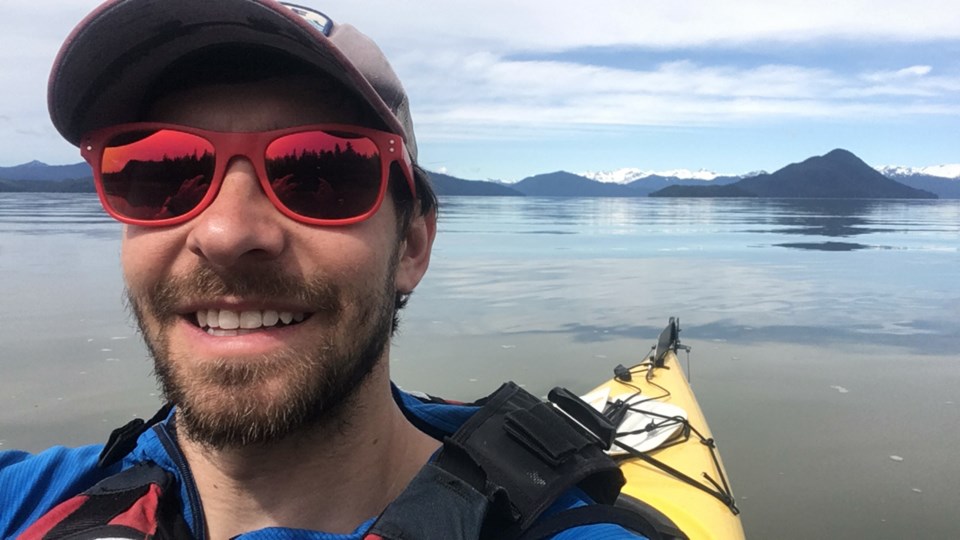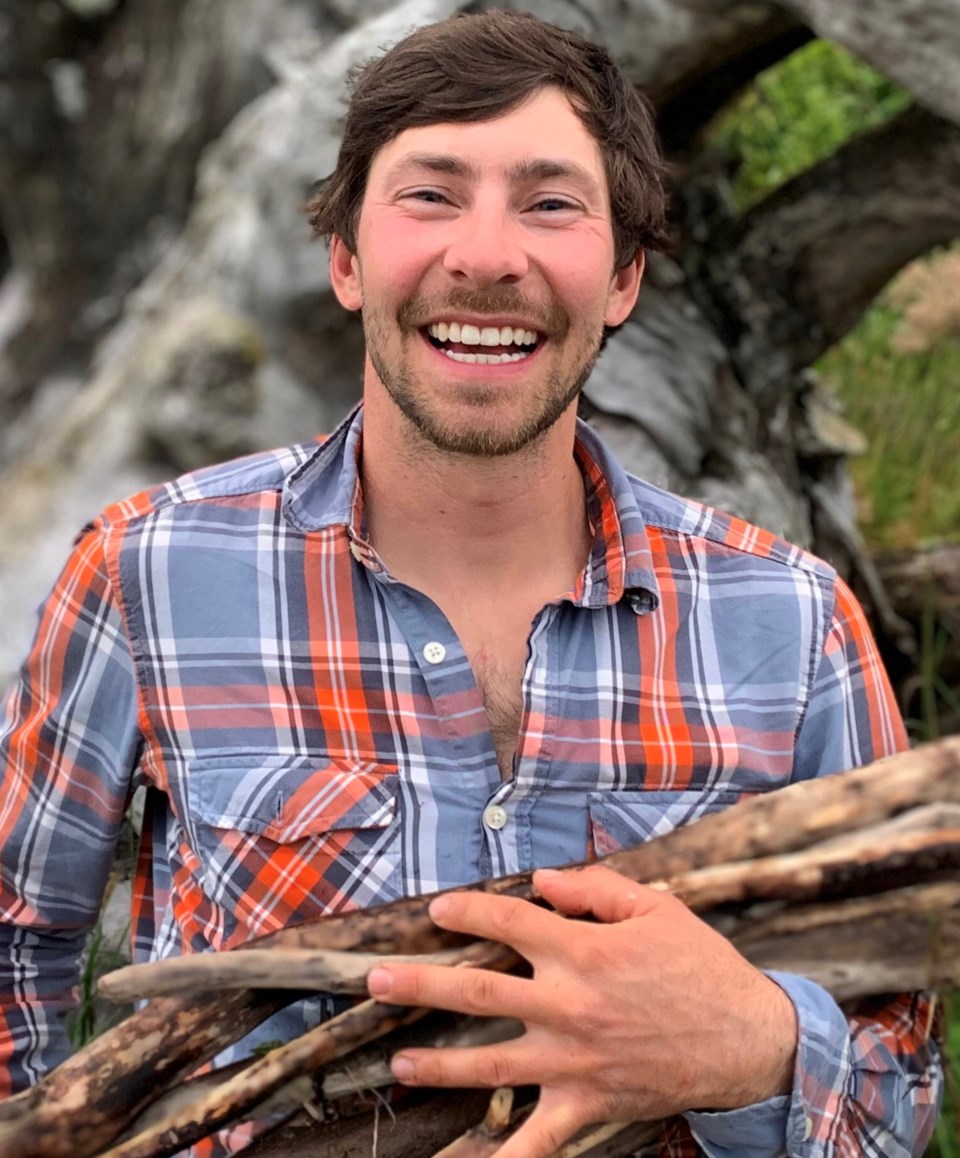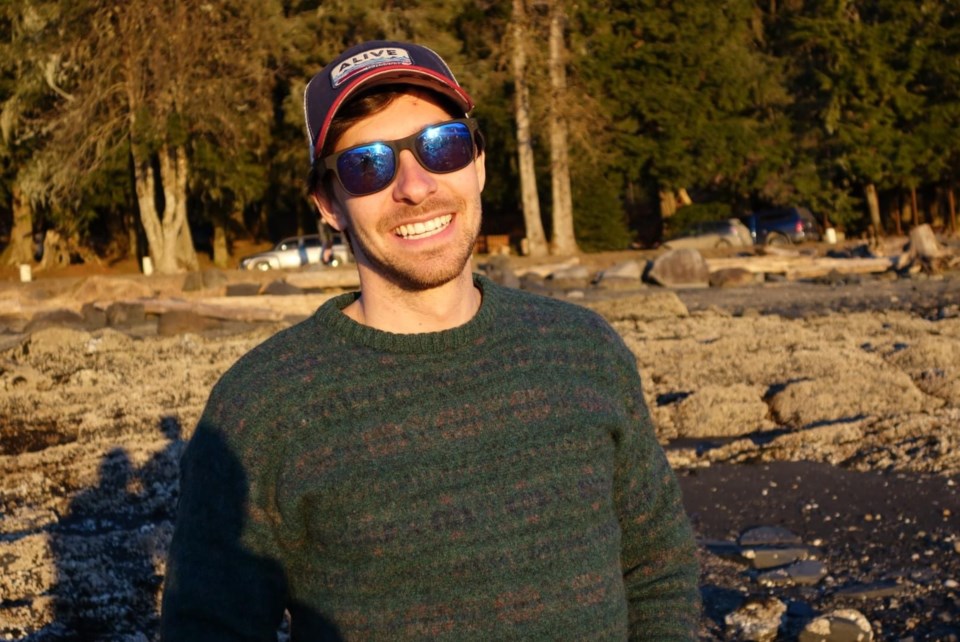Editor's note: This story deals with thoughts of suicide. If in crisis, please call 1-800-SUICIDE: 1-800-784-2433 from anywhere in B.C. or 1-866-661-3311 in the Sea to Sky.
Pride Squamish — the local group dedicated to making space for and celebrating LGBTQ2S+ people and culture — has a new president.
The Chief caught up with Kyle Horvath, 31, for a chat about his background, coming out, and what is next.
What follows is an edited version of that conversation.
Q: What is your background in Squamish?
A: I moved to Squamish Aug. 26. I started as president in September.
I am originally from Ontario. I moved to Victoria in 2012 and then in 2016 I moved up to Alaska. I moved to Squamish this summer for my job as a youth outreach counsellor with Sea to Sky Community Services. I had travelled through before as a rock climber and kayaker and outdoor enthusiast.
Q: Can you tell me about your position?
A: I work with 16 to 19-year-olds who are transitioning to adulthood, which is one of my favourite age spans to work with. Now I have also got the go-ahead to do a youth group as well.
A lot of exciting things are coming for the position, and it is in a place I really love and want to get to know more.
Q: Why is 16 to 19 your favourite age range to work with?
A: I think the challenges with 16 to 19 — or really 14 to 18 or even 24 — is they are expected to be adults and they are expected to have reasoning and the emotional intelligence to do certain things that, to be quite honest, a lot of adults don't have yet. Conflict resolution isn't taught. Budgeting isn't taught. The ability to hold two jobs is not something we should be learning but is something we have to navigate. And so, just giving people who are growing up too fast the opportunity to relax, to have fun, and to learn the difference between maturity and playing a part — because it becomes inauthentic. I have learned a lot over the years, especially through my coming-out process, about the importance of being authentic and how damaging it can be to play a part and fill a role.
Q: Why did you want to be involved in Pride Squamish and why president?
A: While I was up in Alaska in a town called Wrangell — as a settler and visitor in the Tlingit and Haida territory — they were really supportive of the therapeutic programming I was doing.
But outside of that, in the town there was a divide for example between those who support Black Lives Matter, and those who don't.
I thought something had to be done, so I organized a Juneteenth rally [to commemorate the end of slavery] — as just a walk through town. I got a lot of slack from it, but the important part for me was the importance of visibility.
Some people asked me if I was upset at that time that Pride was not the focus, during Pride month. But the individuals who fought for the freedoms I enjoy, Black transwomen [for example], are still fighting for their freedoms today. There can be no celebration until there is fairness and equality.
Fast-forwarding through a few months of turmoil and figuring out the importance of visibility and non-confrontational and unapologetic work of advocacy, landing in Squamish I wanted to get involved in Pride Squamish.
I, first of all, didn't see the visibility of Queer identities in Squamish, or also the Indigenous people and Squamish Nation. I was trying to figure out who this town belongs to.
I want to participate in that conversation.
At first, I didn't want to be president. I wanted to support someone who had been here for a long time, but we didn't have enough people. Tabitha McIntyre has been working tirelessly for the last two years and has now moved to Vancouver, but didn't want to give up Pride Squamish — the movement and momentum. But Tabitha just can't do it full time from there.
So the presidency defaulted to me.
A takeaway from this is that we need more people in Pride Squamish who want to participate in creating community.
Q: If you are comfortable, can you tell me about what coming out was like for you?
A: My coming out was that navigation of resisting and pushing away from what I didn't want to be identified as.
I grew up in a small town in Ontario, the internet wasn't a thing. I didn't watch TV shows, I didn't watch Queer as Folk, for example, because that would have been too damning — too obvious, in a sense.
I didn't come out until I was 18, but all my friends said they knew. My family said they had inklings, but they never brought it up to me because no one talked about it.
There's a masculinity piece because I identify as a man. What do I represent? It becomes really challenging to identify as gay and a man, which is a huge problem.
Up until 18, I was hiding and I was comfortable hiding.
I actually considered suicide because it was easier to think that people around me would be better off without me because I thought being gay was such a bad thing. It was terrible. No one in my family said that or thought that, but somehow I got that message.
Once I started coming out to people — the most awful thing I could imagine doing — people were like, 'Oh, OK.' That rocked my world. So, fortunately, I had the support a lot of people do not.
Now I am 31 and I am a lot more comfortable.
But I am still coming out.

Q: Thank goodness you got through that time. What do you mean that you are still coming out?
A: Every time you meet someone new in our society, you have to come out in a sense. And how do you do that — how do you navigate that? And who is OK with it, and who is not?
Q: Just moving here recently, how do you find Squamish in terms of acceptance?
A: In some ways, I find it independent. I say that because being in Wrangell really taught me that it doesn't matter what other people think. But then, that is the privilege I exist in. That is my male privilege where I also appear straight enough that I don't have questions or people side-glancing me. So Squamish works because I am part of the demographic of privilege.
I can't speak to what it would be like for anyone who identifies as gender-variant or identifies as a trans individual, or who lives differently than I am. I am not a very good representation of who is accepted or not. I hit all of the privileges, so Squamish works for me. I don't think that is the case for everyone. And that is what I want to get to understand.
Q: You are just settling in with your role with Pride Squamish, obviously, but generally speaking, what do you want to accomplish in the position?
A: I want it to be part of the fabric of Squamish. So that it isn't an awkward conversation to talk about Pride Squamish, ever, or coming out as gay or asking where the Gay-Straight Alliance is at the highschool, or how they can access health care.
Pride Squamish is not only my responsibility, or anyone else who is already part of the society.
Pride Squamish should live in the architecture of the town — in the businesses and the schools and the structures that are in place, to live on when I move away, or when other people move away.
Q: Anything else you want to plug about Pride Squamish?
A: Some great local businesses have done some great work with us already, but if any business or individuals would like to connect to Pride Squamish, they can email [email protected] or me at [email protected] and connect.





